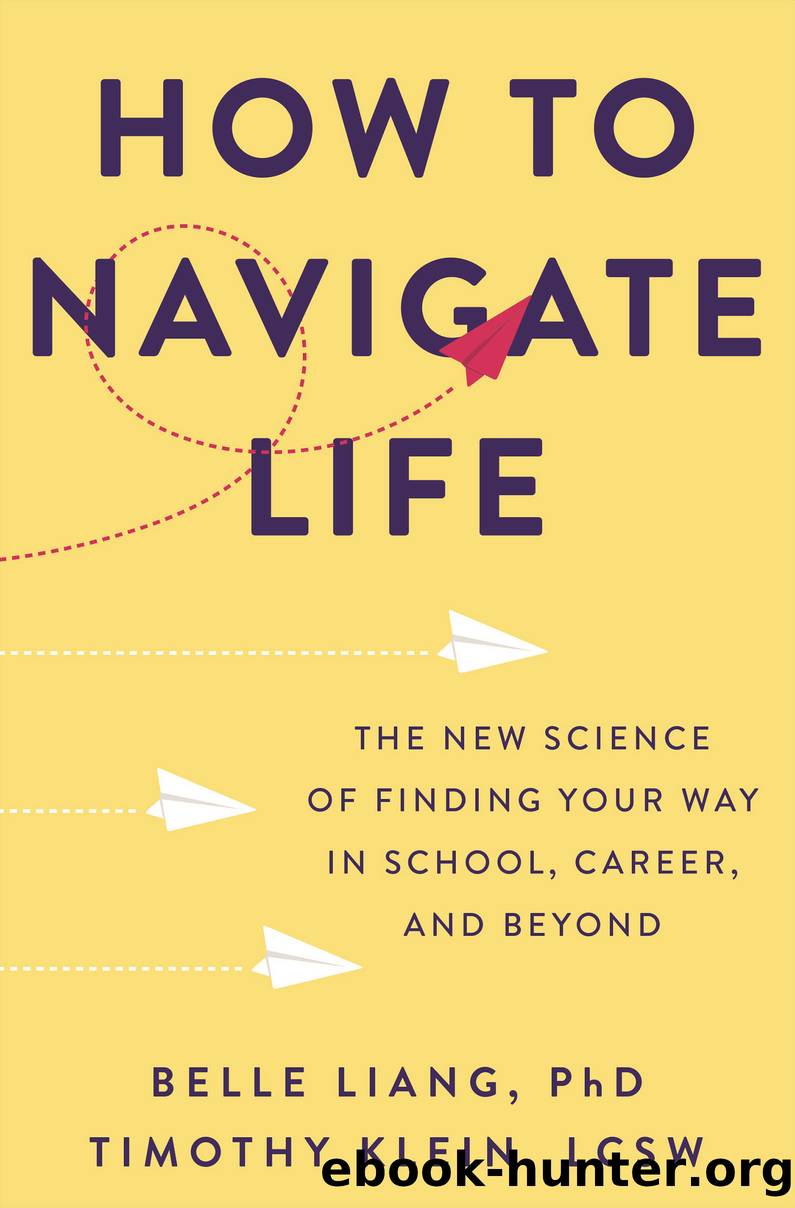How to Navigate Life by Belle Liang PhD

Author:Belle Liang, PhD
Language: eng
Format: epub
Publisher: St. Martin's Publishing Group
Calling BS
First, recognize that your students have finely tuned BS radars. Adults become desensitized to BS from years of exposure, but students are still allergic to it. And thatâs a good thing. The beauty of young people is earnestness and authenticity. BS is anything disingenuous, misleading, or unfair. Itâs the hidden agenda. Even when BS contains elements of truth, the slightest hint of a hidden agenda makes BS feel like âa greater enemy of truth than lies.â2
People learn early in life that their parents have hidden agendas. Even when they mean well, parents get sucked into manipulating their kids out of fear and protectiveness. Helicopter parents fear that danger lurks around every corner (âI trust my kids, but not the world they live inâ). Snowplow parents fear that if they donât beat down these threats, their kids will miss out (âI will blast away my kidsâ obstaclesâ). Performance mindset parents are thinking, if you canât beat âem, join âemâinject kids with winning attitudes (âIâll teach my kids to beat the systemâ). Self-protective parents cover their own assets more than their kidsâ for fear of being judged (âI must help my kids get into such-and-such university, to prove what a competent parent I amâ).
Students have a âfear detector,â similar to their BS radar. When weâre feeling anxious about their choices, they can smell it like sharks detect blood in the water. Questions that are veiled attempts to control or manipulate come across as exactly that. The result is instant tension and defensiveness. Not open, genuine curiosity that sparks self-discovery. This is why itâs generally a good idea to calm down, meditate, pray, and hit your reset button before launching into a conversation driven by fear. Each fear-provoked conversation drives a little wedge into the relationship. Thatâs why we coach parents to ask themselves one question before they intervene: âHow would I parent right now if I werenât scared, worried, or anxious?â In other words, if you knew with certainty that regardless of the current situation, everything would work out fine for your student, how would you respond in this moment? What would you say or do?
When fear is not driving us, our parenting and listening improve dramatically. Suddenly the stage is set for real purpose discovery. We are present. We genuinely want to hear what our students have to say, and so we encourage them to speak freely. We listen carefully. We understand. We validate them.
Authenticity isnât just keeping it real with students, itâs being honest with ourselves. We wonât get too far if we donât get this part right. We have to ask ourselves: What do I really want for my student? Why? Am I imposing any of my own fears and needs on my student? We have to decouple our goals from their goals.
Even if weâve spent our childâs first fifteen years fearfully pushing our own agendas, itâs not too late to come clean. Healthy relationships are fairly resilient and recoverable. They can bounce back quickly and often. Thereâs still time for a fresh start.
Download
This site does not store any files on its server. We only index and link to content provided by other sites. Please contact the content providers to delete copyright contents if any and email us, we'll remove relevant links or contents immediately.
Rewire Your Anxious Brain by Catherine M. Pittman(18648)
Talking to Strangers by Malcolm Gladwell(13358)
The Art of Thinking Clearly by Rolf Dobelli(10472)
Mindhunter: Inside the FBI's Elite Serial Crime Unit by John E. Douglas & Mark Olshaker(9332)
Becoming Supernatural by Dr. Joe Dispenza(8209)
Change Your Questions, Change Your Life by Marilee Adams(7771)
Nudge - Improving Decisions about Health, Wealth, and Happiness by Thaler Sunstein(7698)
The Road Less Traveled by M. Scott Peck(7601)
The Lost Art of Listening by Michael P. Nichols(7501)
Mastermind: How to Think Like Sherlock Holmes by Maria Konnikova(7334)
Enlightenment Now: The Case for Reason, Science, Humanism, and Progress by Steven Pinker(7309)
Win Bigly by Scott Adams(7190)
The Way of Zen by Alan W. Watts(6611)
Daring Greatly by Brene Brown(6508)
Big Magic: Creative Living Beyond Fear by Elizabeth Gilbert(5768)
Grit by Angela Duckworth(5612)
Ego Is the Enemy by Ryan Holiday(5433)
Men In Love by Nancy Friday(5237)
The Laws of Human Nature by Robert Greene(5195)
